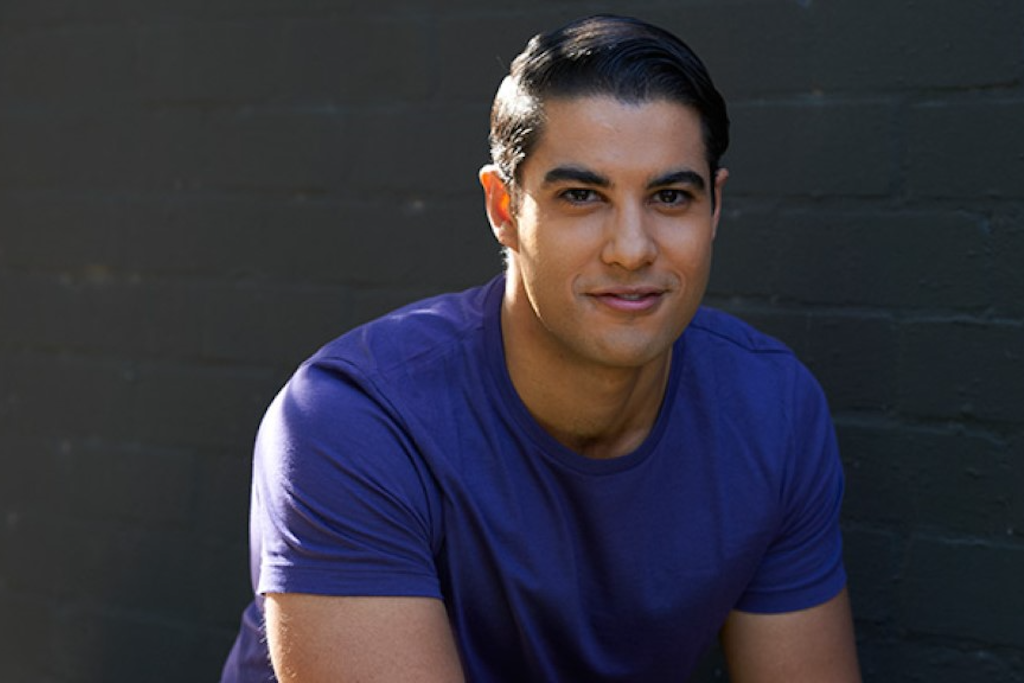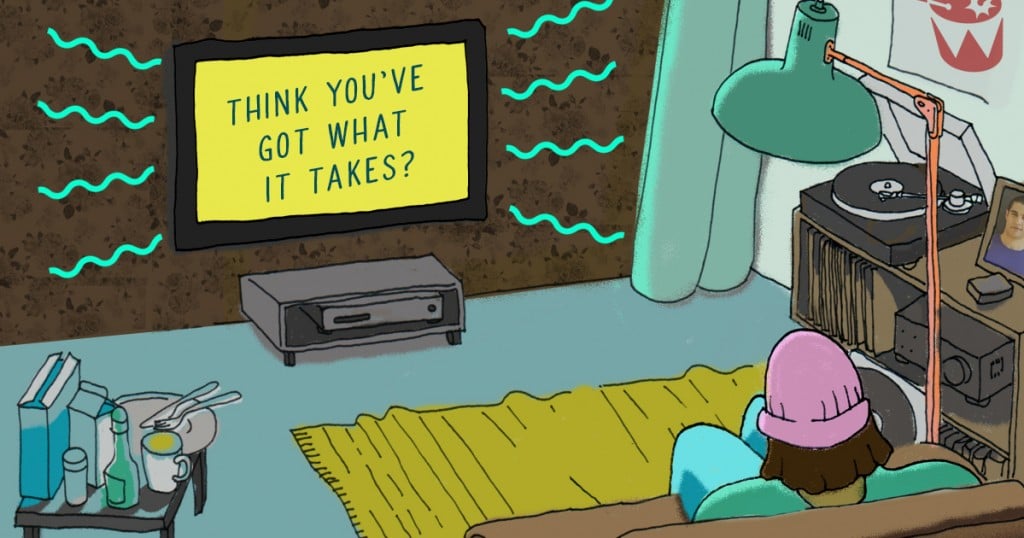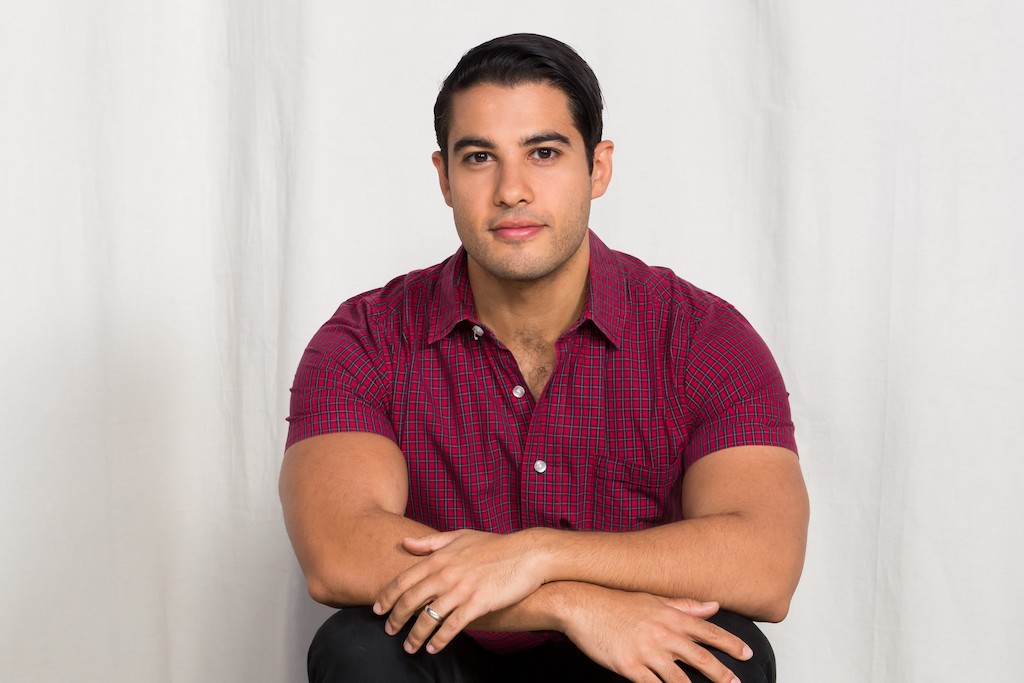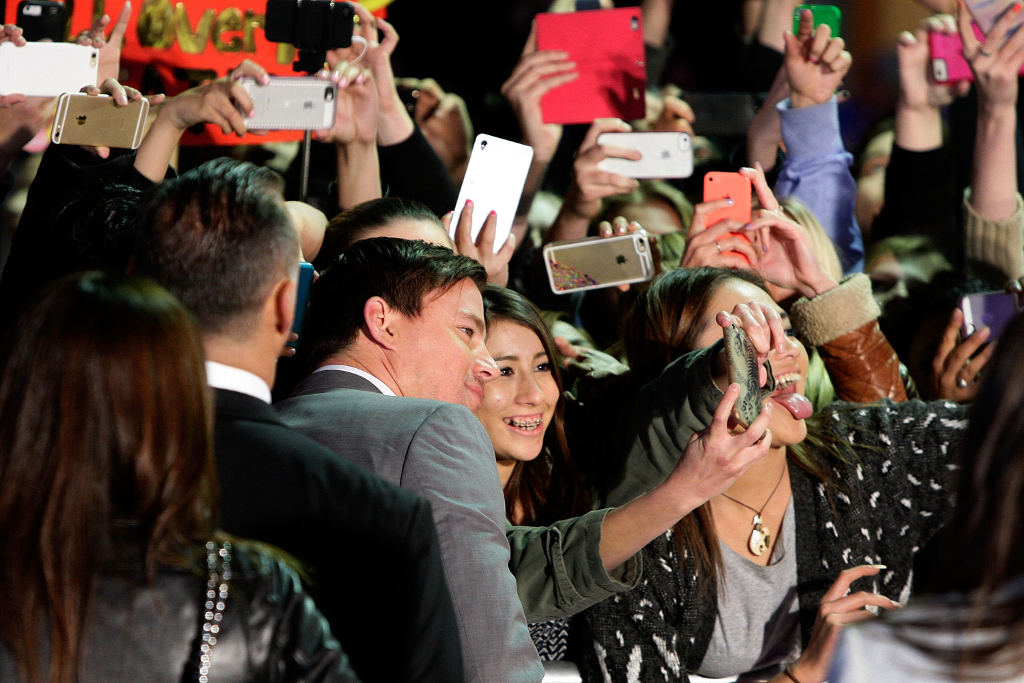Marc Fennell On His Legacy At Triple J And How You Can Snag His Old Job
"I want them to completely rip up the format."

Yesterday Marc Fennell, host of SBS’s current affairs show The Feed and ‘That Movie Guy’ on triple j, announced that after a decade as the radio station’s film critic he was handing over the reigns. To combat the considerable loss of Fennell on our airwaves, triple j has opened a nationwide call-out for applicants to fill the role, which has just been expanded from film criticism to include everything on a screen: movies, TV and streaming.
This is a sweet gig on offer to Australia’s young and bright (and you only have a week to apply!), so yesterday we sought out Fennell for a chat — in between managing the outpouring of commiserations for his retirement and his work on his other day job at SBS. He was generous enough to give us a few tips and tricks for nabbing the new job on offer at triple j. We also talked through his legacy at the youth broadcaster because for real, you guys, 10 years is a really long time for anyone to do anything.
The Legacy Of ‘That Movie Guy’
When we start our interview, Fennell straight up asks me how my day was. “How is your day?” I reply, and he gives an incredulous laugh. “Ah, it’s been weird. Super weird.”
He goes on, “It’s like living through your own funeral and seeing people mourn you.” When I comment that it must be a bit of a downer, he clarifies enthusiastically, “No, it’s lovely, but I’ve never experienced anything like it before. I feel like I’ve been in public-ish jobs since I was a teenager but never in my life have I experienced anything like this. It’s off the charts, really.”
He’s not wrong. Since Fennell made his announcement yesterday morning social media has lit up with fond memories of his epic period as That Movie Guy on triple j.
Best of luck and a huge thank you to @MarcFennell! That Movie Guy was one of my all-time favourite triple j segments.
— Spencer Scott (@ImSpencer77) May 15, 2017
.@triplej are on the search for a new movie/TV reviewer to replace @MarcFennellhttps://t.co/1SuLL6osv6
Big shoes but… pic.twitter.com/x8JK1S6Zg0— Tali Aualiitia (@taliaualiitia) May 15, 2017
Gonna miss listening to @MarcFennell's segments on @triplej.
— ➹Hazel (@blokeishchick) May 15, 2017
I ask Fennell about his feelings on giving up the role, which might have largely defined his career over the past decade. “I feel really good about it. I mean, it was my decision,” he assures me. “It was partially that time, and it was also just because I’m constantly on the road with The Feed. I really do love that job [at triple j], and I felt like I couldn’t give it the amount of brain space that I felt like movie reviews on triple j deserve.”
Fennell is incredibly passionate about the role, and its importance in the milieu of Aussie cultural coverage. However, for what it’s worth, he doesn’t expect any newcomer to ‘fill his shoes’. “I want them to completely rip up the format. I built that format around me, around the way I talk and the way I communicate. My personality.”
“I think what I don’t want to hear is a whole bunch of people doing ‘That Movie Guy’ because, you know, I barely pulled it off.” Fennell is, of course, being pretty modest, because his reign on triple j was so epic it earned him a book deal with Harper Collins to write That Movie Book, where he gives longer-form opinions on his favourite films.
“The great joy of triple j,'” he tells me, “is introducing people to things that they’ve never heard of or would never consider. Introducing people to movies that were never going to get coverage anywhere else. Which, by the way, that’s something I didn’t get to do enough of.”
Fennell’s Own Hits And Misses
We go into his history as ‘That Movie Guy’, including some of his greatest moments, and a few flubs. Yesterday we revisited his most brutal review, of the trainwreck I Now Pronounce You Chuck And Larry, so I ask Fennell which review has made him proudest of his job.
“The ones I’m most proud of are the ones where I felt like I reframed the movie.” he tells me. “The weird one that comes to mind is the Magic Mike movie. The Magic Mike movies were sold as salacious male stripper movies, but they ended up being really joyous sex-positive, body-friendly films about male bonding and a bunch of other things that they were not sold as.”
He goes on, “I love the opportunity that you get to reframe how a movie is seen. And that can apply to good movies and bad movies.”
We go back to the bad movies, and I ask him about the opportunities he often got to slam a really dreadful film. Even here, he retains his thoughtfulness. “The reality of it is that people genuinely loved when I went to town and really slammed a film, and I get that.” He thinks for a beat, then goes on, “But I was always really wary about not doing too many of those, because then it just becomes like, ‘Well why would I listen to Fennell, he just fucking hates everything’, right? So I was very careful to curate.”
Finally we discuss career flubs. I ask him if he feels any twinges of embarrassment about any past reviews, and he’s so keen on the question he scrolls through his website to find a review he regrets. “Actually, there’s a few that I think I just got wrong,” he explains as he scrolls. “Ah! You know? I reckon I got Prometheus wrong. I got so blown away by the spectacle of it, and the imagery, and Ridley Scott is so great at creating individual scenes that it wasn’t until I got out and I was done, and I watched it again on a TV screen that I just went, ‘Fuck, this is not holding together at all’.”
We run through a few more of his review mishaps, and both agree that James Cameron’s epic Avatar doesn’t live up to the original hype. “When Avatar came out,” explains Fennell, “on this big screen, and the 3D, and the cinema experience, it’s incredible. And I knew deep down that it was just basically Pocahontas with Smurfs, like, I knew that. But I could kind of ignore it because the spectacle was so great. But then, watching it on a DVD, I was like, ‘This is just not good at all’.”
Fennell tells me his favourite moments at triple j were when he got to share things that might not have had coverage elsewhere. “Those were things I was happy to share,” he says. “There’s a beautiful Australian film, 52 Tuesdays, which is one of my favourite films of the last couple of years, about a young girl whose mother is transitioning to a man. And they shot it in Adelaide, every week, for fifty-two weeks. Beautiful film, great story.”
“Or,” he goes on, “a great romantic comedy from a couple of years ago called All My Friends Are Leaving Brisbane. It was, like, an Australian rom-com at a time when they were never making that. And they sent me a DVD and I was like, ‘Sweet, I’m going to put this on the radio’.”
“That is the power of triple j,” he says, “to get attention on those films. I wish I had been able to do more of that stuff.”
Hot Tips On Snagging The Triple J Gig
When I ask Fennell for tips to help those gunning for his job at triple, he gets incredibly serious. He has tips, loads of them, and he runs through them at breakneck speed.
“It’s a broadcast medium,” he explains, “and that is fundamentally different to any other kind of film criticism really out there at the moment. And for broadcast to work, you have to relate to people. I’ve always said that the way I write as a triple j reviewer is, when I’m watching a movie I write a little conversation with myself, as though I’m talking to a friend.”
He develops an analogy for this kind of comforting content: “I literally imagine I’m talking to a slightly drunk person at a bar. The reason I say slightly drunk is because when you’re dealing with people who are slightly drunk you have to do more to catch their attention, you have to essentialise a little bit.”
I ask him about the experience of being on the air and he explains, “The important thing to remember in this job is your film review sits in the middle of two tracks, which means nobody’s actively going out there looking for it, they’re encountering it by accident. So the onus is on you to actively hook the listener within four, five seconds. And you’ve got to talk to that listener as though their one person. You imagine one person, in their car, and you have a picture in your head.”
We discuss the expansion of the role from straight film reviewing to reviews of film, TV and streaming content. Fennell tells me, “They want to change the focus off of movies and onto TV because let’s be honest, it’s so obvious, when you and I talk about what we’re watching these days, 90 per cent of the time we’re talking about TV and we’re talking about something streaming. And I think it’s only logical that whoever steps into that role reflects that change in our screen culture.”

We return to the subject of his legacy, and he reiterates how keen he is for new blood to replace him at triple j. “There are some underlying principles to the medium that I think need to be satisfied in order for it to work,” he says. “But ultimately I’m offering up these principles with the knowledge that deep down somebody may have just the right kind of personality, and the right kind of turn of phrase, that none of this shit applies. And they just make it work for them.”
Fennell, who has been a public face for over a decade, is happy for someone to virtually destroy his legacy with their fresh perspective. “I’d love to see the rules broken and I’d love for people to go, ‘Do you know what? Fennell was shit, I’m all about this new person now’. I’m really happy if that is what comes next.”
To finish, I ask Fennell what his ultimate piece of reviewing advice is. “You are arming the person listening with enough information so that they can make a choice for themselves,” he says. “You know, there are people that listen that will always hate my opinion. And they know that when I come on and I say I like something, they’re going to go, ‘Well if he likes it, I’m not going to go see it’. And that is fine, because you want to hear somebody and triangulate your own view against that.”
“For me, it’s not about a film critic looking from on high, and telling you what’s good and what’s bad. It’s about me saying, ‘Look, I’m a listener who happens to have a microphone’. I’m starting a conversation that you finish, as the audience. That’s the power.”

